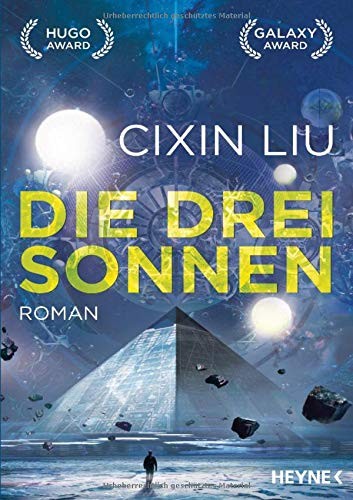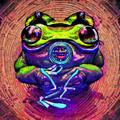Der Micha (e)k Cixin Liu(r)en Die drei Sonnen liburuaren kritika egin du (Remembrance of Earth's Past, #1)
Pageturner
4 izar
Da der Hugo-Award-Gewinner aus dem Jahr 2015 einer der wenigen international erfolgreichen SF-Romane aus China ist, finden sich auch zahlreiche deutschsprachige Zusammenfassungen und Rezensionen. Sehr spannend geschrieben, ein echter pageturner (habe es an drei Tagen weggeatmet). Viele Einblicke in die Auswüchse der Kulturrevolution in den späten 1960ern, und das kritischer, als ich es (wohl vorurteilsbehaftet) erwartet hätte. Schön ist der Ansatz, dass nicht "die Menschheit" als wie auch immer geeintes Kollektiv den ersten Kontakt erlebt, sondern verschiedene Interessengruppen agieren.
Einfallsreich ist die Idee, das Heimatsystem der Aliens mit drei Sonnen anzulegen. Die aus den wechselwirkenden Gravitaionskräften entstehenden Auswirkungen auf den Planeten der Aliens bilden die zentrale Herausforderung für die kulturelle und technische Entwicklung der Zivilisation(en) - in "chaotischen Zeitaltern" schwächelt die Alienzivilisation oder geht komplett unter, um in "stabilen Zeitaltern" neu zu erblühen. Die Darstellung der Aliens hat mich persönlich nicht so ganz mitgenommen - einerseits werden die Trisolarier als …
Da der Hugo-Award-Gewinner aus dem Jahr 2015 einer der wenigen international erfolgreichen SF-Romane aus China ist, finden sich auch zahlreiche deutschsprachige Zusammenfassungen und Rezensionen. Sehr spannend geschrieben, ein echter pageturner (habe es an drei Tagen weggeatmet). Viele Einblicke in die Auswüchse der Kulturrevolution in den späten 1960ern, und das kritischer, als ich es (wohl vorurteilsbehaftet) erwartet hätte. Schön ist der Ansatz, dass nicht "die Menschheit" als wie auch immer geeintes Kollektiv den ersten Kontakt erlebt, sondern verschiedene Interessengruppen agieren.
Einfallsreich ist die Idee, das Heimatsystem der Aliens mit drei Sonnen anzulegen. Die aus den wechselwirkenden Gravitaionskräften entstehenden Auswirkungen auf den Planeten der Aliens bilden die zentrale Herausforderung für die kulturelle und technische Entwicklung der Zivilisation(en) - in "chaotischen Zeitaltern" schwächelt die Alienzivilisation oder geht komplett unter, um in "stabilen Zeitaltern" neu zu erblühen. Die Darstellung der Aliens hat mich persönlich nicht so ganz mitgenommen - einerseits werden die Trisolarier als fremd und technologisch übermächtig aufgebaut, andererseits sind sie in ihren Begriffen, Konzepten und Motiven doch allzu menschlich. Die physikalischen Annahmen werden nach hinten raus auch deutlich absurd - ein elfdimensionales Photon wird von den Trisolariern auf zwei Dimensionen aufgefaltet, mit Schaltkreisen bestückt und zur KI aufgerüstet, als sogenanntes Sophon wieder eingefaltet und auf die Menschheit losgelassen. Wer diesen Move beherrscht, sollte eigentlich auch das Dreikörperproblem der Himmelsmechanik packen, vor allem, wenn das Problem die treibende Kraft der Entwicklung darstellt.
Hat insgesamt Spaß gemacht, freue mich auf den zweiten Teil.


